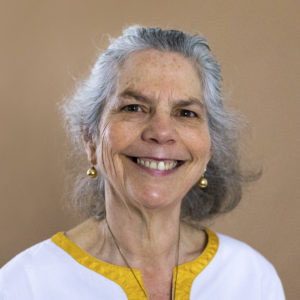 A selfless person does not depend on anyone or anything to be happy. Selflessness, unconditional happiness, and peace of mind go hand in hand. Whatever happens, such a person retains their peace. By remaining in that peace, they are in a much better position to react to what life brings to them in a way that is positive and helpful. According to the Bhagavad Gita, one of the ancient yogic scriptures, one of the definitions of Yoga is, “Perfection in action.” And Swami Satchidananda defines a perfect or yogic action as “one that causes no harm to anyone or anything, and also results in at least a little benefit to someone or something.”
A selfless person does not depend on anyone or anything to be happy. Selflessness, unconditional happiness, and peace of mind go hand in hand. Whatever happens, such a person retains their peace. By remaining in that peace, they are in a much better position to react to what life brings to them in a way that is positive and helpful. According to the Bhagavad Gita, one of the ancient yogic scriptures, one of the definitions of Yoga is, “Perfection in action.” And Swami Satchidananda defines a perfect or yogic action as “one that causes no harm to anyone or anything, and also results in at least a little benefit to someone or something.”
If someone takes advantage of me, it is because I allowed that to occur in some way. And that can only happen when I have personal expectations—when my happiness depends on something outside of myself. Maybe I want someone to like me even though they are not very nice to me. The problem really is that I have the feeling that in order to be happy I have to stay around that person. If I did not expect my sense of happiness, of security, and so forth, to come by being with that person I would just walk away!
I’ve heard Swami Satchidananda suggest that if you are in the presence of—or even if you are just hearing about—something unkind or worse, and if you can’t be helpful in that situation, then simply walk away. It’s not our job to fix everything. Maybe someone else can do a better job of helping the unkind person to change their ways.
A selfless person will naturally be as thoughtful of themselves as they are of others because such a person understands the meaning of the biblical teaching, “Love thy neighbor as thyself.” You cannot love anyone if you don’t love yourself. And if you love yourself, you will never put yourself in harm’s way.
But to love yourself you have to know who your Self is. And that requires an unselfish or selfless mind. It’s only an unselfish mind that can remain calm enough to experience their true nature, which is peace. Because when your actions are motivated by wanting this, that, and the other thing it makes the mind restless. You wonder, Will I get it? And once you get it, How can I keep it? Worry over losing it comes in. As I said above, selflessness and peace of mind go hand in hand.
For a deeper understanding of the benefits of living a selfless life, I would suggest the following book to begin with: To Know Your Self by Swami Satchidananda. Another wonderful spiritual book is The Book of Joy by the Dalai Lama and Desmond Tutu. In that book, compassion and selflessness are highlighted.
About the Author:
 Rev. Bharati Gardino became a student of Swami Satchidananda in the 1960s. In 1986, she and her husband, Joe, moved to Satchidananda Ashram–Yogaville, where they created and managed the organic garden. She’s also served in the Integral Yoga Teachers Association and the Yogaville Credit Union and currently serves in the Satchidananda Prison Project, the Integral Yoga Magazine, and teaches Hatha and Raja Yoga at the Ashram and at Buckingham Prison. She was ordained in 2001.
Rev. Bharati Gardino became a student of Swami Satchidananda in the 1960s. In 1986, she and her husband, Joe, moved to Satchidananda Ashram–Yogaville, where they created and managed the organic garden. She’s also served in the Integral Yoga Teachers Association and the Yogaville Credit Union and currently serves in the Satchidananda Prison Project, the Integral Yoga Magazine, and teaches Hatha and Raja Yoga at the Ashram and at Buckingham Prison. She was ordained in 2001.

